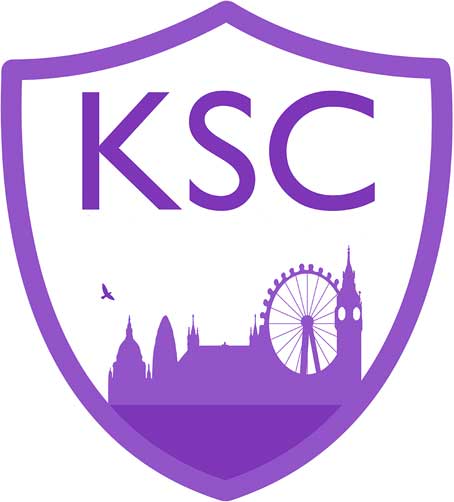Our Promise
Digital technology has become an important part of everyday life in recent years especially during the COVID-19 crisis. Having the use of the internet and mobile technology brings wonderful opportunities and for many a new way of communicating quickly and efficiently. However the increasing number of cases where workplace and school practice has highlighted inappropriate use of technology, behaviour and an exposed to upsetting or inappropriate content online have demonstrated the need for clear practice guidance for students and organisations around safer working practice. Kingston Study Centre (KSC) has a statutory and moral duty to ensure that we function with a view to online safeguarding and promoting the welfare of children, young people accessing education in the UK, and to cooperate with outside agencies. All children and young people have the right to protection from any kind of online abuse and the right to exist in a safe and friendly environment whilst in the care of KSC. Keeping pupils safe continues to be our top priority. All of our staff have a continuing responsibility to promote the welfare of the children we work with and protect them from any form of online harm, and to support vulnerable children.
This Guidance provides some advice and guidance about safer working practice for our students, parents and anyone working or volunteering with children and young people. It is about our conduct and professionalism. It is about keeping our students’ and staffs’ personal and professional lives separate, keeping them safe when using digital media and adopting responsible behaviour that should protect everyone from putting oneself at risk. This guidance does not cover an in-depth advice on the safeguarding of children and young people – for this please look at our policy documents on “Online Safeguarding“, “Data Protection Policy” and “E-safety.

Online Risk
Children may be exposed to upsetting or inappropriate content online, particularly if the platform you’re using doesn’t have robust privacy and security settings or if you’re not checking posts. This content might be sexually explicit or it might be harmful in other ways, such as bullying, or content that’s upsetting. Children’s posts or profile information may expose personal information and put them at risk. For example, they may talk about their home life, feelings, or thoughts they’ve been having. There may be information that makes them identifiable such as locations of events they are taking part in or visual clues in photographs.

Online Safety
During the current situation, student screen time will inevitably be increased significantly, both for home learning and personal use. The school is committed to keeping children safe online and to ensuring positive online interaction between teachers, parents and pupils. Some work should also be set which is not computer-based, to allow pupils learning time away from screens. Pupils, parents and organisors are required to sign an Online Learning Agreement. By signing, they agree to maintain positive habits of learning, communicate respectfully with teachers and other pupils online, behave properly, as they would in school, and act responsibly online to ensure their own safety and that of others.
Parents should be aware of:
The importance of remaining in control of electronic devices at home and remaining in earshot when children are in contact with teachers and othere pupils.
- What their children are being asked to do online during this period of remote learning and interacting.
- The sites that the children will be asked to access.
- Filters that might be appropriate on home computers if online lessons are to be effective if online lessons are to be effective.
- Who their child is going to be interacting with online.
- How to report concerns to the school, angen and KSC.
- Where to seek support to help them to keep their children safe online.
- If they are using mbile divices to connect with other students, check if any of their apps have ‘geo-location’ enabled, sharing their location unintentionally.
- It should be made clear to parents that children are expected to attend online lessons accordingto the published timetable.
We advice to our students:
- They must be dressed appropriately. Any pupil not dressed appropriately will be immediately removed from the lesson.
- If possible, on the device they are using, they must blur their background. We highly reccommend students to use plane white backgrounds.
- If this the above is not possible on their device, please can you they position themselves so that no identifying features that could compromise data protection or safeguarding are visible. This includes any photos that could identify where they live or any other personal information.
- They must not record or take screenshots of the lesson.
- They must not use other platforms to chat online with their peers while the lesson is ongoing (for example on their phones)
- We expect behaviour to be impeccable. Any student who disrupts the learning of others, will be removed immediately from the lesson.
- We expect behaviour to be impeccable. Any student who disrupts the learning of others, will be removed immediately from the lesson.
Our Online Monitoring Team will:
Check to ensure that lessons are taking place at the appropriate times.
- ‘Drop in’ to online lessons randomly and in response to any concerns raised.
- Assess parental feedback from questionnaires regarding types of distance learning and adjust provision accordingly.
- In the event of teacher misconduct, we should make a referral to the Teaching Regulation Agency.
- Make sure that the names, email addresses and phone numbers of parents and students are personal data; therefore only relevant people should have access, and the information should only be kept for as long as it is required.
- Enforce that all staff should maintain the security of computerised databases of information on individual pupils.
- Encourage that student data should not be kept on the private devices of staff.
Our Staff will ensure to:
- Reinforce e-safety messages during lessons and when setting homework that requires access to the Internet.
- Encourage students to be critically aware of the content they access on-line and be guided to validate the accuracy of information, acknowledge the source of information used, avoid plagiarism and respect copyright.
- Be alert to possible peer-on-peer abuse. This could occur during online collaborative work in Google Classroom or on a Zoom session. Teachers must control these sessions and report concerns. No additional unsupervised online collaborative work should be encouraged. Check what is visible on screen to the pupil, so that nothing inappropriately personal is visible (e.g. personal item, painting, poster)
- Make sure that there is never a possibility of strangers having access to the screen.
- Check thoroughly any pictures or video-clips that we want to share with pupils.

Mental Health
Our staff and teachers are aware that temporary school closure and distance learning can affect the mental health of pupils and their parents. We advice our team and thet eachers should take this into account in setting expectations of pupils’ work when they are at home and raise concern if they suspect, from a child’s behaviour or emotional state during online lessons, that there may be underlying mental health issues. Subject teachers or staff will contact a child’s tutor in the first instance who can investigate and then escalate to the our Online Managment Team if appropriate. We are also aware that (Special Education Needs) SEN children are particularly vulnerable and need added support during this period of online learning , both in terms of staying safe online and accessing education successfully. The Childnet International will provide particular guidance for these pupils.
Kingston Study Centre
Partner With Us
Special Programmes
UK Centre
Kingston Study Centre
Causeway House
13, The Causeway
Teddington
TW11 0JR
Teddington
TW11 0JR
Tel: +44(0) 203 908 5634
International Centre
Kingston Study Centre
No12
Aly, 54 Ln, 118 Sec. 2
Heping E. Rd
Da'an Dist
Taipei City 106,
Taiwan
Tel: +886(0) 966 796336
+886(0)2 2738 8750
© Kingston Study Centre.
Reg No: 07071027, KINGSTON STUDY CENTRE LTD, 13, The Causeway, Teddington, TW11 0JR
